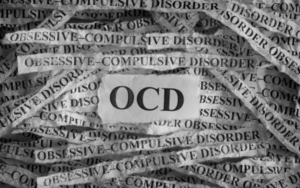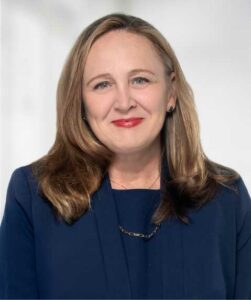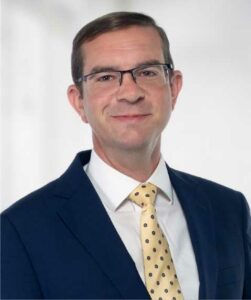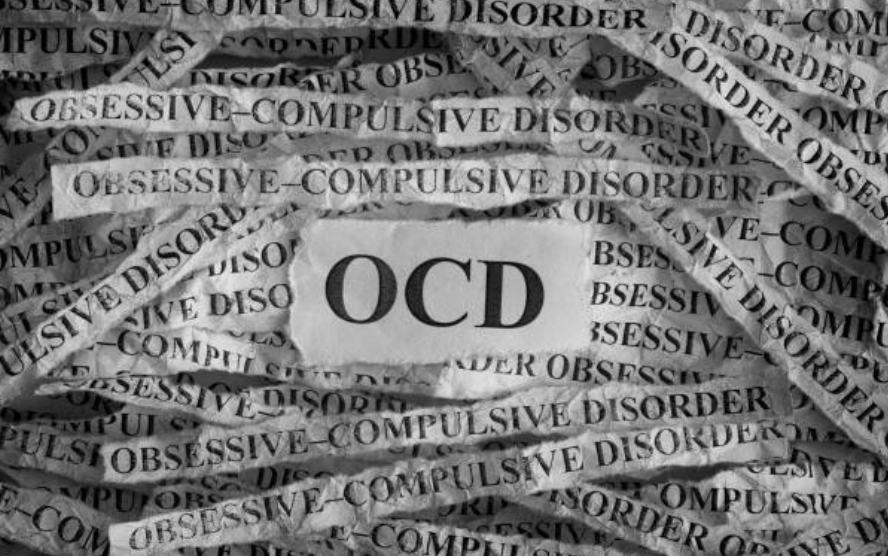
Obsessive Compulsive Disorder (OCD) may be the most misunderstood psychiatric illness. Most people have heard someone say, “well that’s my OCD” or “I’m OCD about cleaning my house.” OCD is not simply wanting things to be neat and orderly or having to do things a certain way. It is, at times, a debilitating brain illness characterized by having obsessions and compulsions. An obsession is a thought, urge or image which is often repeated and intrusive in nature. The thoughts, urges, or images can cause significant distress. A common symptom of OCD is a contamination obsession where a person repeatedly thinks that they or someone else will get sick by coming in contact with something specifically. Another common symptom is a fearful obsession whereby a person has mental images of assaulting or injuring others people. Still further indiduals with OCD can have obsessions that are intrusive taboo thoughts, like inappropriate sexual thoughts, or even magical thinking such as “if I don’t do this thing, my family will be in an accident.” There are many other examples and types of obsessive symptoms. A compulsion is a behavior driven by an urge to alleviate the anxiety or emotion caused by the obsession. This can include various rituals: counting, putting things in order, praying excessively, reassurance seeking from others, and similar.
OCD is treatable. Often patients are embarrassed by their obsessions or compulsive behavior and do not want to talk about them. OCD Treatments include medications (Serotonin Selective Reuptake Inhibitors, Clomipramine) and a type of talk therapy called Exposure Response Prevention (ERP). Transcranial Magnetic Stimulation (TMS) with ERP has been FDA cleared for the treatment of OCD since 2018 when medications do not work. Because we understand the neurocircuitry involved in OCD better than any other mental illness, there is a procedure called a cingulotomy which can be performed in the most severe cases that don’t respond to Meds, ERP, or TMS
Most of the time, OCD symptoms begin in childhood. Occasionally, the symptoms will go away as a child grows older, for others OCD becomes a lifelong condition that requires ongoing treatment to control symptoms.
At the NeuroScience & TMS Treatment Center, we have several treatment options we can use, beyond common medications and therapy, to aggressively treat you for brain diseases. Learn more about our treatments and services on our Comprehensive Behavioral Health Page.
Blog Post Authors
 Michelle Cochran, MD, DFAPA
Michelle Cochran, MD, DFAPA
Founder & Chief Medical Officer • Medical Director, Nashville Locations
Dr. Cochran has been living and working in the Nashville area for over 25 years. She supervises the skilled Nurse Practitioners who work in our clinics. She has been offering TMS services since 2011 and lectures and consults nationally and internationally about TMS. She is Board Certified and is a Distinguished Fellow of the American Psychiatric Association. Learn more about Dr. Cochran.
 Jonathan Becker, DO
Jonathan Becker, DO
Medical Director, Brentwood Locations
Dr. Becker is a native of Tennessee, born in Memphis. He completed his undergraduate and master’s degrees in Developmental Psychology at Tulane University in New Orleans before attending Des Moines University for Medical School. He completed his psychiatry residency program at Vanderbilt University and served as a faculty member there for 7 years before transitioning to our office. While at Vanderbilt, Dr. Becker served as the medical director of the neuromodulation service from 2017-2020. Dr. Becker has also published many psychiatric articles. Learn more about Dr. Becker.

